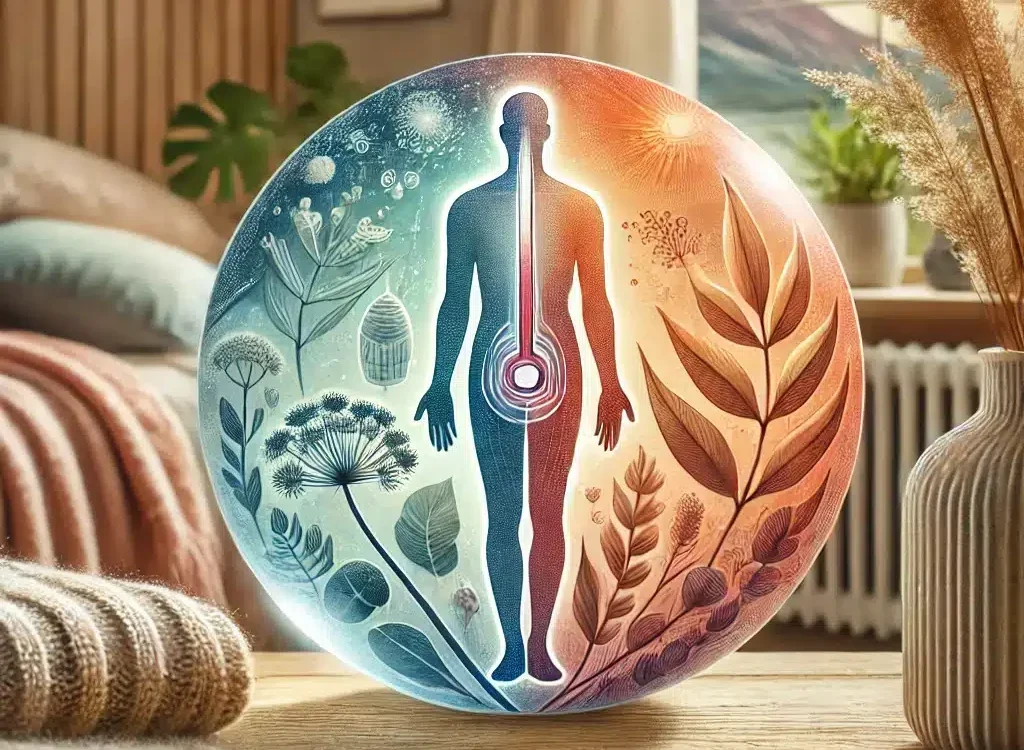
- Your immune system keeps nasty infections away. Things get complicated when you have autoimmune disease, and the immune system turns on you and starts attacking healthy tissues.
- There’s no 100% pure and perfect meal or habitat, so you need a liver to deal with low-level toxicity in your food and environment.
- Some experts think the rise of autoimmune disease is because the toxic burden of modern living outpaces our body’s ability to eliminate those toxins.
- Read on to find out how your liver keeps your insides squeaky clean, why that matters for autoimmune disease symptoms, and how you can support your liver so that it can keep up with everything life throws at it.
You can pick up a dirty shovel even if you have a cut on your hand, and you can go to the supermarket without catching a cold every time, because you have an immune system to keep nasty infections away.
Things get complicated when you have an autoimmune disease, where the immune system turns on you and starts attacking healthy tissues. There are over 100 types of autoimmune diseases, and the number of people who suffer from them increases year over year, which makes you wonder, what’s causing the uptick?
One suspicion is that the toxic burden of modern living outpaces our body’s ability to clean house. Even in the purest possible environment, there’s no 100 percent pure and perfect meal or habitat, so you need a liver to deal with low-level toxicity in your food and environment. It’s also there for us when our own cells make waste products just by doing its day-to-day thing.
When your body has to deal with the extra toxic load that comes with things like air travel and mass-produced agriculture, your body’s detox systems can fall behind and struggle to play catch-up.
Read on to find out how your liver keeps your insides squeaky clean, why that matters for autoimmune disease symptoms, and how you can support your liver so that it can keep up with everything life throws at it.
Related: Instantly download a free grocery shopping guide and stock your fridge with liver-friendly foods.
What does the liver do?
The liver cleans the blood in three phases:
- Filter
- Breakdown
- Emulsify
Filter
The liver does a first-pass cleaning of the blood to separate out larger toxic compounds.
When your liver filtration is working well, it’s like a strainer filtering a trickle of water from your faucet. When it’s not operating as efficiently as it could, imagine what happens when your strainer is full but the water is still running. You get spillover of unfiltered water.
Breakdown
The liver uses specialized enzymes to break down certain toxic molecules into less toxic or non-toxic compounds. Your liver produces enzymes based on demand.
When your liver enzymes are in healthy ranges, that means your toxic load is manageable. When you have elevated liver enzymes, either your toxic load is high or your liver isn’t filtering or producing bile, your body’s fat emulsifier, as well as it could be.
Emulsify
When you eat, your brain sends a signal to the liver to make bile. Bile is a substance that helps turn large fat globules into smaller ones, and it’s a main way to get cholesterol out of the bloodstream where it could accumulate and harden your arteries (you want cholesterol in places like your brain where it can do good things). The gallbladder stores your bile and releases it when your small intestine senses the presence of fat you ate. Bile emulsifies fat-soluble toxins and kicks them down the digestive tract for elimination.
When your liver isn’t producing bile efficiently, you don’t digest your fats well. This could lead to dry skin, digestive discomfort, floating stool, or even bile duct disorders and gallbladder attacks from stagnation.
Your liver processes carbs and sugar
Your digestive system also tasks your liver with processing carbohydrates and sugars. When your blood sugar is high, the liver responds by packaging it up as glycogen and storing it in the liver itself or sending it off to muscles for storage.
If your carbohydrate intake is low, your liver isn’t spending a ton of energy on digesting carbs. If it’s high, your liver is dealing with those at the expense of the molecules that make you sick.
Liver congestion, and do I need a liver cleanse?
When you come into contact with an amount of toxins your liver can handle, this system works well. If you lived outside in a non-industrialized forest with a clean stream of water and all wild and foraged foods, your liver would have no trouble at all keeping up. That’s not our world, though. Today, you’re exposed to countless toxins your body isn’t equipped to deal with efficiently, like:
- City air and fumes
- Chlorinated, fluoridated water
- Vegetables coated with chemical sprays
- Meats pumped full of antibiotics and hormones
- Off-gassing from particle board furniture and stain-resistant carpeting
When your liver gets overloaded, toxins stay in your bloodstream for another trip around the circulatory system. If all goes well, your liver will process these compounds the second time around, but what usually happens is you have a fresh batch of toxins coursing through on top of the original.
Your body has a few back-up methods. Your sweat, lymph, and immune system come into play when your liver is overloaded, and that’s in addition to their day jobs.
What does liver function have to do with autoimmune disease?
If your body can’t get rid of toxins by normal methods in a timely manner, your immune system activates, and the first of many steps in the immune response is inflammation. If you’ve had an autoimmune disease for a while, you may know that the one thing you want to avoid is inflammation. With an autoimmunity, inflammation causes the immune system to attack healthy tissues.
The liver is so central to autoimmune flare-ups that in an episode of the Bulletproof Radio podcast, Dr. Izabella Wentz, PharmD., (iTunes) recommends you do some hefty liver support as a crucial part of reversing thyroid problems from Hashimoto’s Thyroiditis, an autoimmune condition that causes the immune system to attack the thyroid.
Ways to support your liver
If you search for a liver cleanse or liver flush, you’ll find a zillion ways to cleanse the liver — some effective, some not so much. Some seem mild, some sound downright violent. Here are some gentle ways to support your liver every day.
- Adopt a low-carb diet. Since your liver processes carbs and sugar, you can help keep your liver’s burden low by staying away from sugar and keeping your carb count down.
- Get your antioxidants. Your liver is busy, and its day-to-day processes release free radicals that can weaken its own cells. Eating a diet rich in antioxidants, and taking supplements like vitamin C and glutathione can boost your antioxidant counts to protect your liver. Not only that, but the liver uses antioxidants to convert toxic compounds into inert ones.
- Check your stomach acid. A large portion of the population has low stomach acid, even if they’ve been told their symptoms point to high stomach acid. Low stomach acid results in the liver receiving food particles that aren’t ready for liver processing. That’s hard on your liver.
- Incorporate liver support herbs. Certain herbs like dandelion and yellow dock have bitter resins that stimulate the digestive system and keep everything flowing. Milk thistle shows a protective effect in rats against the effects of alcohol on the liver.
There are times when your immune system is going to activate, and there’s nothing you can do about it. With liver support, you can free up your immune system to react to actual invaders instead of toxic overload. The key to managing autoimmune disease is to get your immune system in a place where it activates when you need it to, and stays quiet when you don’t.













